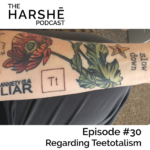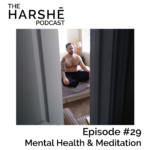
Postpartum depression, antenatal depression, and post-traumatic stress disorder related to birth are multi-faceted, complicated illnesses that can be caused by a number of different things. While some experts propose that these things have physical causes, others report psychological factors as the main cause. And others, like myself (although I would not consider myself an expert), believe it could be a little of each.
Either way, all of us agree that the effects of these conditions are detrimental and should be prevented as much as possible. One research team noted that postpartum depression “is a serious mental health problem for women” and that “it’s consequences have serious implications for the welfare of the family and the development of the child.” (O’Hara and Swain,1996, p. 37)
“Postpartum depression has a long term effect on mental health since it may increase the risk of continuing or recurrent depression. Postpartum depression has also been associated with adverse effects on early infant development, especially among socially disadvantaged children. Serious consequences for the child include increased risk of accidents, sudden infant death syndrome, and an overall higher frequency of hospital admissions.”
PPD has far-reaching effects on not just a woman but her entire family and society in general. And even worse, 1 to 2 of every 1000 women experience postpartum psychosis. (Stanton & Gallant, 1995; Noncas & Cohen, 1998)
While numbers differ, most studies indicate the number of PPD cases is between 8 and 15%. However, a study by researchers Stanton & Gallant showed at least 26% of moms experience at least mild depression.
The percentage of women experiencing postpartum depression can differ dramatically by country as well. That is why studies show rates of postnatal depression that are much larger and much smaller. Either way, we know this is sadly a growing trend.
Because no one knows a woman’s body as well as she knows it herself, I think it is best to present as much of the scientific evidence available on this topic to women and let them pinpoint, prevent, and even possibly reverse the triggers that led to their own experiences with postpartum depression.
Consequently, the following information is a collection of strictly unbiased scientific studies and their outcomes. I encourage every mom to consider each one and how it might help her and her family’s health during pregnancy, birth, and beyond, as well as other women in her community.
Essential Fatty Acid Deficiency
According to one study, women with low DHA levels are 6 times more likely to suffer from postpartum depression. “Study results quantified women with lower omega-3 PUFA levels as being six times more likely to be depressed antenatally, compared to women who had higher omega-3 PUFA levels.”
As a nutrition counselor, I often see the effects of essential fatty acid deficiencies. Most common is a deficiency of omega 3 fatty acids related to the improper ratio of omega 6 to omega 3 in our food supply, which is what the study above showed. For instance, vegetable oils (corn, canola, soybean, etc.) are very high in omega 6 and low in omega 3’s, leading to a deficiency of omega 3’s. At least 70% of our food supply contains one or more of these types of oils.
Sixty percent of our brain is made up of fats. When a growing baby in utero does not obtain the necessary fats from mother’s diet for proper brain development, the necessary fats will come out of mother’s stores in the brain. This is a common cause of not only PPD but also postpartum “brain fog” and children with ADHD.
EFA deficiency does not have to wait until delivery to affect a mother in the form of depression or brain fog, sometimes resulting in antenatal depression as well.
To correct/prevent this, vegetable oils (and foods containing them) should be eliminated as much as possible and exchanged for healthy oils such olive oil and coconut oil. Foods that are also high in these essential fatty acids are fish, walnuts, flaxseed, and chia seeds. I recommend that pregnant women take a cod liver oil supplement for good brain health in both mom and baby.
Thyroid Health
“Women with thyroid dysfunction had a higher incidence of depression.”
In this study, researchers found that the more severe the mother’s thyroid dysfunction, the more severe her postpartum depression was. Like PPD, postpartum thyroiditis is a growing health concern and one that I often encounter in my profession. Symptoms include low breastmilk production, extreme fatigue (more than from having a newborn baby!), and depression.
Pregnancy can have a taxing effect on a woman’s thryoid, the butterfly-shaped gland in the neck. Coincidentally, so do things in our food and water supply. Soy/soybean oil and fluoride in drinking water are two of the most damaging to our thyroid health. Avoiding foods with soy/soybean oil in them and drinking non-fluoridated water, as well as eating 1-2 Brazil nuts/day for selenium (which has a protective effect on the thyroid), will go a long way in helping support a woman’s thyroid during pregnancy.
Labor & Delivery Circumstances
One particular study found that cesarean delivery increased the rate of postpartum depression or postpartum PTSD:
“A significantly higher incidence of postnatal depression was found among subjects who had undergone Caesarean section than in those who had a vaginal delivery. The excess of cases of postnatal depression among the Caesarean subjects appeared to consist of a milder illness which started sooner after delivery. Following Caesarean section, there was a significant association between postnatal depression and general, but not regional, anaesthesia.”
Alternately, a study by Missouri Western State University found that while women having home births and/or who were attended to by a midwife, the location and type (cesarean or vaginal) was not so much the factor leading to postpartum depression as was the amount of control and satisfaction a woman felt she had with her baby’s birth. Overall, they found that the more support a woman had during labor and postpartum, as well as the more control she had over her own labor and delivery, the less likely she was to suffer from postpartum depression.
Bottle-Feeding
“According to a new theory being proposed by University of Albany evolutionary psychologist Gordon Gallup and his colleagues, the decision to bottle-feed is tantamount, in the mother’s psyche, to mourning the loss of the child. At least, that’s how a woman’s body seems to respond to the absence of a suckling infant at its breasts in the wake of a successful childbirth.”
The authors of this study believe that “the absence or early cessation of breastfeeding would have been occasioned by miscarriage, loss, or death of a child. We contend, therefore, that at the level of her basic biology a mother’s decision to bottle feed unknowingly simulates child loss.”
Of course, not all women are able to breastfeed. For those that are, this is good reason to avoid bottle-feeding strictly for ease. For those that choose to bottle-feed or need to bottle-feed based on certain circumstances, we can still reap the benefits of frequent skin-to-skin contact with baby to increase psychological health of both mom and baby.
Lack of Postpartum Community Care
Traditional cultures took (and continue to take) a very different approach towards a woman’s postpartum period. In a report from 1983, researchers Stern and Kruckman found that postpartum depression was virtually non-existent in traditional cultures. These cultures had many practices to value new mothers and their babies by the way they took care of them and encouraged a period of rest and pampering. While these cultures differed in the way they valued the postpartum period, they all shared five protective social structures. They can be seen here (http://www.breastfeeding.com/helpme/cultures.html) and include a distinct postpartum period that is set aside and treated differently than any other time of life, social seclusion and mandated rest, and functional assistance.
In contrast, mothers in industrialized countries are encouraged to be as productive as possible and to entertain guests who come to see the baby. There is an inherent expectation for mothers in America to get back to life as normal as quickly as possible. Mother-focused support is extremely limited in industrialized countries and, according to Stern and Kruckman, is a main cause of postpartum depression.
Additional Factors
A very large study of Scandanavian women and postpartum depression discovered additional factors leading to PPD:
-Psychological distress in late pregnancy
-Perceived social isolation during pregnancy
-Positive history of prepregnant psychiatric disease (either by family members or the mother herself)
This study shows the importance of avoiding any unnecessary stressful situations whenever possible during pregnancy. It also confirms that women with either a family history or personal history of depression. Correcting any underlying imbalances and/or nutritional deficiencies related to depression either before or during pregnancy will benefit both the mother and baby.
(For more information on some of the possible causes of depression and some natural remedies, go to Healthy Families for God’s article here.)
Postpartum and/or antenatal depression, as well as PTSD related to childbirth, are definitely complicated illnesses. Hopefully, with this information, moms will be able to experience more of the joy and excitement of bringing a new life into this world! To support women in your community, share this article with them. Together, we can work to create a more supportive postpartum period for mothers the way traditional cultures have done for centuries!

Sara Jo Poff is a personal nutrition counselor, wellness educator, and the founder of Healthy Families for God. Her mission is to help people overcome health traps and the food habits that cause them in order to live an abundant, joyful life living out their God-given purpose. Sara Jo also started Circle of Elephants, an effort to protect pregnant women from medical injustice in America. But before these pursuits, her priority is as a wife, a homeschooling, cloth-diapering, extended breastfeeding, Jesus-seeking mom to five children, ages 2 to 16. For more information, check her out at http://healthyfamiliesforgod.com/.
*Photography by Katsoulis Photography. He also has an extensive 200 page guide on the subject of Pregnancy Photography that has just been published for the iPad that can be found here.











4 Comments
Christi
Thanks for posting this article! Awesome, instinct-sound advise & encouragement. 🙂
jen
Wanted to add that not all fish oils are created equal, and one should do some research before purchasing.
I only order Green Pastures fermented cod fish liver oil as recommended by the Weston A. Price Foundation.
(Not being solicited to say – I just have seen amazing personal improvements with my own depression since I started taking it pre–pregnancy.)
The Organic Christian
Yea I would completely agree with your comment. I read up a lot on how fish oil supplements now can be rancid and are actually worse for you to be taking. So stick to the good quality brands. After hearing Diane Sanfilippo say so many times how you can’t even know with some of the “better quality” brands I also stick with green pasture fermented cod liver oil. (I am also not being solicited to say that, lol)
Gabi
This is important information for women to understand, as PPD is so prevalent. One natural PPD help is taking encapsulated placenta after your birth. This benefits our system (mind and body) by significantly helping to balance postpartum hormones.